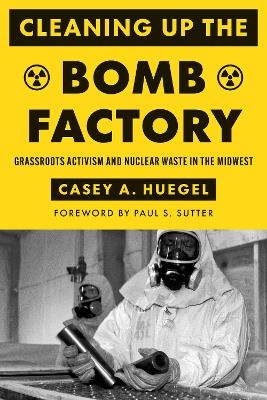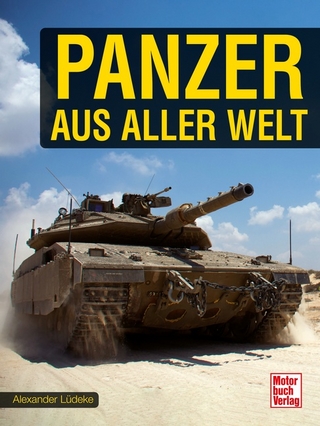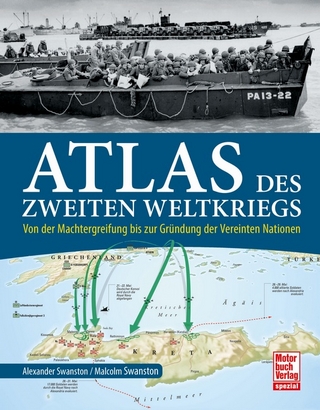
Cleaning Up the Bomb Factory
Grassroots Activism and Nuclear Waste in the Midwest
Seiten
2024
University of Washington Press (Verlag)
978-0-295-75255-6 (ISBN)
University of Washington Press (Verlag)
978-0-295-75255-6 (ISBN)
Housewives, hard hats, and an Ohio town’s restoration of the radioactive wasteland in its backyard
In 1984, a uranium leak at Ohio’s outdated Fernald Feed Materials Production Center highlighted the decades of harm inflicted on Cold War communities by negligent radioactive waste disposal. Casey A. Huegel tells the story of the unlikely partnership of grassroots activists, regulators, union workers, and politicians that responded to the event with a new kind of environmental movement.
The community group Fernald Residents for Environmental Safety and Health (FRESH) drew on the expertise of national organizations while maintaining its autonomy and focus on Fernald. Leveraging local patriotism and employment concerns, FRESH recruited blue-collar allies into an innovative program that fought for both local jobs and a healthier environment. Fernald’s transformation into a nature reserve with an on-site radioactive storage facility reflected the political compromises that left waste sites improved yet imperfect. At the same time, FRESH’s outsized influence transformed how the government scaled down the Cold War weapons complex, enforced health and safety standards, and reckoned with the immense environmental legacy of the nuclear arms race.
A compelling history of environmental mobilization, Cleaning Up the Bomb Factory details the diverse goals and mixed successes of a groundbreaking activist movement.
In 1984, a uranium leak at Ohio’s outdated Fernald Feed Materials Production Center highlighted the decades of harm inflicted on Cold War communities by negligent radioactive waste disposal. Casey A. Huegel tells the story of the unlikely partnership of grassroots activists, regulators, union workers, and politicians that responded to the event with a new kind of environmental movement.
The community group Fernald Residents for Environmental Safety and Health (FRESH) drew on the expertise of national organizations while maintaining its autonomy and focus on Fernald. Leveraging local patriotism and employment concerns, FRESH recruited blue-collar allies into an innovative program that fought for both local jobs and a healthier environment. Fernald’s transformation into a nature reserve with an on-site radioactive storage facility reflected the political compromises that left waste sites improved yet imperfect. At the same time, FRESH’s outsized influence transformed how the government scaled down the Cold War weapons complex, enforced health and safety standards, and reckoned with the immense environmental legacy of the nuclear arms race.
A compelling history of environmental mobilization, Cleaning Up the Bomb Factory details the diverse goals and mixed successes of a groundbreaking activist movement.
Casey A. Huegel is an adjunct professor of environmental studies at the University of Cincinnati and a public historian with the National Park Service.
| Erscheinungsdatum | 05.06.2024 |
|---|---|
| Reihe/Serie | Cleaning Up the Bomb Factory |
| Mitarbeit |
Herausgeber (Serie): Paul S. Sutter |
| Vorwort | Paul S. Sutter |
| Zusatzinfo | 2 Maps; 15 Illustrations, black and white |
| Verlagsort | Seattle |
| Sprache | englisch |
| Maße | 152 x 229 mm |
| Gewicht | 476 g |
| Themenwelt | Natur / Technik ► Fahrzeuge / Flugzeuge / Schiffe ► Militärfahrzeuge / -flugzeuge / -schiffe |
| Geisteswissenschaften ► Geschichte ► Regional- / Ländergeschichte | |
| Geschichte ► Teilgebiete der Geschichte ► Militärgeschichte | |
| Naturwissenschaften ► Biologie ► Ökologie / Naturschutz | |
| Sozialwissenschaften ► Politik / Verwaltung | |
| ISBN-10 | 0-295-75255-6 / 0295752556 |
| ISBN-13 | 978-0-295-75255-6 / 9780295752556 |
| Zustand | Neuware |
| Haben Sie eine Frage zum Produkt? |
Mehr entdecken
aus dem Bereich
aus dem Bereich
von der Machtergreifung bis zur Gründung der Vereinten Nationen
Buch | Softcover (2023)
Motorbuch Verlag
24,90 €


